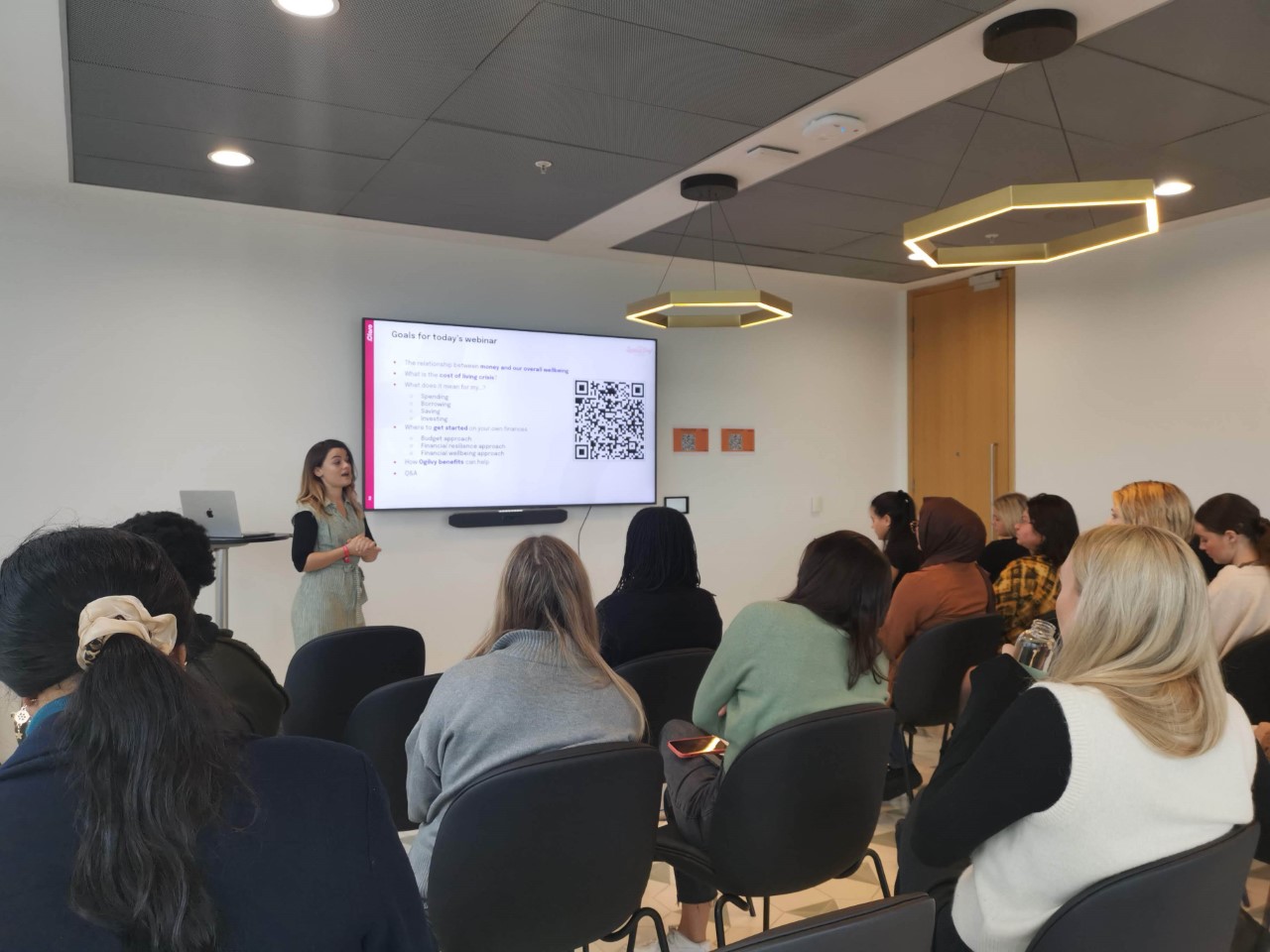Advertising giant Ogilvy has partnered with Claro Wellbeing to empower staff to take control of their finances with a series of topical, bespoke financial wellbeing workshops for its staff.
To kick off the partnership, employees attended the sessions as part of Ogilvy’s annual ‘Learning Day’ at its London headquarters to learn more about how to manage their money effectively and boost their overall wellbeing.
The two workshops – ‘Taking care of your financial confidence and wellbeing in difficult times’ and ‘Now is the time to budget’ – were both full to capacity. Staff in the first session explored the framework for measuring their own financial wellbeing and how to manage their spending, saving and investing during the cost of living crisis.
Those participating in the second workshop discussed the fundamentals of budgeting and how to create an effective financial plan, regardless of their situation, gaining practical tips to improve their money management skills and confidence.
Gemma Davies, Head of People at Ogilvy, said:
Wellbeing is a broad and complex topic, and addressing the reasons behind people feeling stressed and worried is important. We chose to work with Claro Wellbeing as the team has huge experience in delivering coaching and workshop sessions with people of all ages. The group workshops were useful in starting constructive and positive discussions around money, and gave the team actionable tips on how they can improve their individual personal finance habits. With inflation at record highs, it was important that we support our staff and their financial wellbeing.
Gemma Davies, Head of People at Ogilvy
The sessions were delivered and created by Claro Wellbeing’s Head of Employee Wellbeing Stacey Lowman, to support staff at different life stages and levels of financial confidence, based on Ogilvy’s internal staff feedback.
Employees expressed an interest in learning more about budgeting and cash flow management, financial wellbeing and creating a financial plan.
Each hour-long session included a Q&A, and was repeated twice to enable as many employees as possible to join.
Stacey Lowman, Head of Employee Wellbeing at Claro Wellbeing, said:
The Learning Day with Ogilvy was so much fun! It was great to see a company integrate financial wellbeing with other wellbeing initiatives like mental health support and puppy play. It really helps to break down the taboo of talking about money in the workplace.
It was a joy to facilitate money conversations amongst colleagues and see them supporting each other with money tips and sharing their own financial experiences. The vast majority (86%) of employees say money worries impact their work performance, so addressing the root cause of this is vital. In fact, poor financial wellbeing costs UK employers billions in lost productivity each year, and the creative, advertising and media industries are no different. It is great to work with Ogilvy as a forward-thinking employer on the matter.
Stacey Lowman, Head of Employee Wellbeing at Claro Wellbeing
Workplace Wellbeing Professional is an online magazine featuring news and analysis on a broad range of employee wellbeing topics, focused on a UK based audience.


